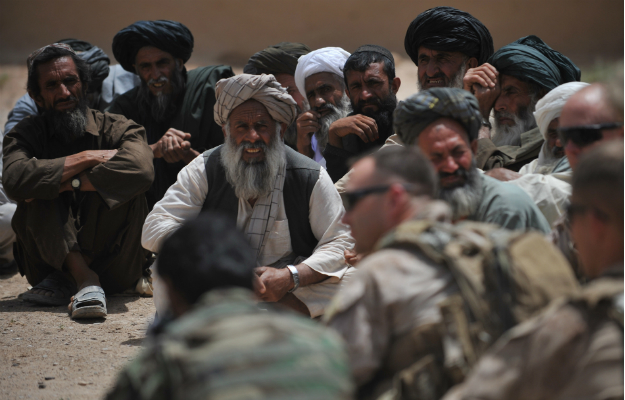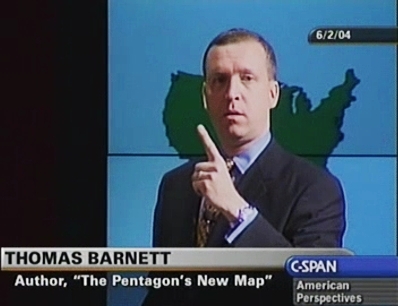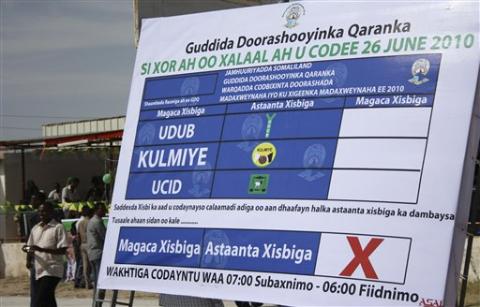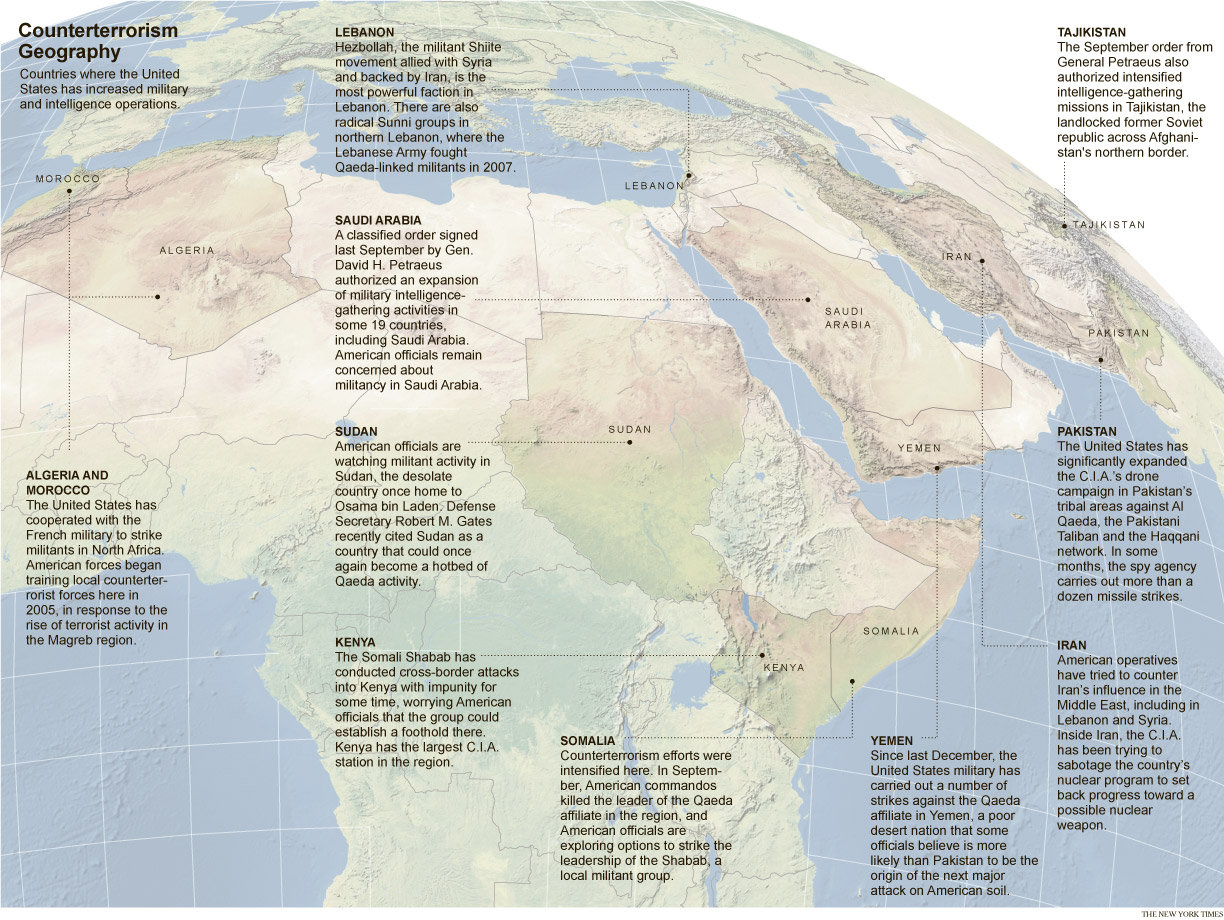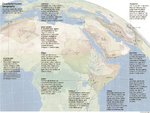Two triggers for yesterday's declaration:
1) interview with Canadian journalist (Globe and Mail; nice guy) where I found myself, as always, defending the SysAdmin concept from its usual caricatures (all military, all US or at best all West, and all public spending). And you know, I just get tired of repeating myself after seven years, reminding everyone that I said from the start: more civil than mil, more USG than DOD, more rest-of-world than just US or West, and--duh!--overwhelming private-sector funded. So what does Afghanistan tell us about Canada's future choices with its military? It tells us that the West and the US in particular still myopically chooses to view the SysAdmin task as overwhelmingly military-centric, DoD-centric, NATO-centric, USG-centric, and official developmental aid-centric, and guess what? None of that, even piled on top of itself, constitutes a quorum for Afghanistan. The only package that works there will be heavy on Indians, Iranians, Turks, Russians and Chinese--in addition to the Pakistanis. It will involve those countries building and defending networks and markets. Victory won't involve the creation of a democracy--at least not one we'd recognize any time soon. Instead, as usual, given our vast costs sunk thanks to our stubborn unilateralism and government-firstism, we'll view any such outcome along the lines of "We fought the war, but the X won!" It's a stupid and petty mindset and eventually enough frustration with outcomes will drive it out of us, but such change tends to come generationally--go figure. Anyway, I go on a long riff with this guy and I wonder why I'm still making these arguments in broadcast fashion to an audience that's apparently unready for it, when there are so many private-sector actors and non-US governments moving down this path with a vengeance--meaning better clients. Why not run with them and pull back from this evangelical path here in the States, somewhat embodied in the time-intensive blog?
[As a side-rant, let me skewer the inane stupidity that says, "Barnett's SysAdmin concept was doomed from the start" by pointing you in the direction of Africa, where SysAdmin "forces" and "functions" are in evident display all over the place. And guess what? The vast majority of the work is being done by non-military, private-sector-funded non-Westerners, and IT WORKS JUST FINE DUMBASS! But sure, if you want to reduce that force/function in all its complexity and breadth within globalization's advance to a small-unit operation in some remote Afghanistan valley and ask the question, What was Barnett thinking when he said a bunch of US Marines with guns could somehow "connect" Afghanistan to the world? Then yes, all my vision was completely invalidated by that one apocryphal firefight! Meanwhile, while you stare at your most American of belly-buttons, globalization continues to penetrate the Gap with stunning speed and integrating effect--and never the twain shall conceptually meet. But understand this, I don't sell theory; I sell observed reality, which I name. You can wallow in your caricatures and claim my defeat, and I will shake my head at your complete inability to read what I write and hear what I say--in every single brief I've ever delivered.
But I regress . . .]
2) As I move down this path, I run into days where I find the blogging requirement crowds out too much good personal and professional stuff. Today I spent a long block of time thinking through cyber governance issues and it was great. If I have the blog on the usual high-volume sked, that's impossible, as is a certain amount of parenting. Plus, after seven years of being in the evangelical mode, I simply want to move on.
Still, I like the site that I've built, and I like having a place to centralize certain things in terms of presentation and archiving. I also want to put certain things out there regularly, like announcing latest columns and posts at Esquire and other stuff I write and publish. Then there's always that simple desire to express myself and to record, diary-style, certain things I do (like a planned trip to China in October).
So I know I'm going to finally cave into my wife on the time-lost-to-the-blog complaint (there's the two new kids impact), especially since my career evolution (different role at Enterra as it matures and thus wider network of activities, which was my norm until a couple of years ago) demands both more focus and concentrated efforts and involves a lot of partners who are, as I stated yesterday, not much interested in this broadcast mode but desire more exclusive content more exclusively delivered. And when I realize that my most circulated stuff on the Web is what I write for WPR and Esquire, then why maintain the blog at such a high level? Simply put, it strikes me an outdated model: I started it as pure analytical diary and it became too much the formal presentation as the field was quickly crowded by mainstream venues re-establishing their natural hierarchy (so every mag now has a blog and most bloggers of note operate within organized structures).
[Second side rant: Why did I talk myself or let myself get talked into this pathway of formalizing the blog? Too many people complaining that I didn't take myself or my legacy seriously enough, which I think I do in my formal writings. I just don't think I should have to adhere to that level of formality here. I didn't in the beginning, and I'd like to go back to that and screw all the references and some of the visuals and instead go back to the analytic diary and pure self-therapy of writing for release. Too many times in recent months I've found myself staring at the blog entry screen, saying to myself, "Type something profound, damn it!" And you know what? As soon as you say that you're doomed to be boring and trite and predictable. Plus it takes so long.]
So the question becomes, why not drop out from the old model and go to something more relaxed--as in, write what I want when I want, and shift the quick-and-dirty recording of semi-interesting articles via Twitter, where the lack of visual requirements and the restrictions on text length guarantees a modicum of effort and no more?
And so that is what I will do, and I'll see how that goes. What I know is this: I don't want to fill this space like I used to. I find myself needing to retreat mentally from that level of broadcasting/sharing. I've spent 7 years doing the evangelic thing and it's been fun, but having done it, I will admit to a certain level of boredom with it--the usual seven-year-itch that seems to regularly relocate me in a geographic sense (from Wisconsin to New England to mid-Atlantic to New England back to the Midwest and now plotting a return to the mid-Atlantic). I'm about seven years having left my job at the Naval War College (I really left in 2001 when I went to OSD, then again in 2003 when I left OSD, and finally--truly--in 2005, so let's split the difference) and I can feel the reinvention coming, which corresponds nicely to Enterra's nifty maturation and settlement into three core areas of exploitation (healthcare, supply-chain management of consumer products, and supplier-chain management of complex sustainment efforts in the defense sector). So as things are simultaneously settling down and expanding and blowing up, I find that natural itch to reinvent and recast and rebalance.
And so that is the way it will be: irregular posts here on stuff I really, truly, absolutely want to archive, with the rest going via Twitter, where I will limit myself--poetically--to as few syllables as possible (I thought I did pretty well today). I will continue the archiving of formal pubs, along with their announcements here, and I will likely archive travel and other special stuff.
But I will abandon the volume standard that I settled into (totally self-imposed) and let the rest migrate to Twitter (the pointing dog stuff). That just doesn't interest me like it used to; been there, done that--done. Plus, when I compare my original posts from the spring of 2004 to now, I realize that, back then, I mostly riffed and made scant reference to MSM materials (just using them as launching points), and now the bulk of my text are excerpts, which feels like I'm playing fact checker. [Another triggering realization: I had a lot of fun riffing on that Andy Krepinevich piece recently, but I hardly go long like that any more in the blog; instead, I spend too much time cataloguing--and reminding--and watching what I say. But again, what gets reposted mostly is the more careful, edited stuff I write on WPR and Esquire, so why not go back to the casual standard here--as in, I write-for-myself-so-f@3k-off! Because that stuff I can write very fast when I choose to, meaning no real burden.
Anyway, I had long feared/hoped this would happen when I finished the Great Trilogy, and that day has finally arrived.
So I kill the formal blog and reclaim the diary, my debt to society and history fulfilled in the dead-tree Trilogy.
But yeah, I will still rant mostly about globalization, because it's the most interesting thing I know.
 Sunday, August 22, 2021 at 12:03PM
Sunday, August 22, 2021 at 12:03PM 








